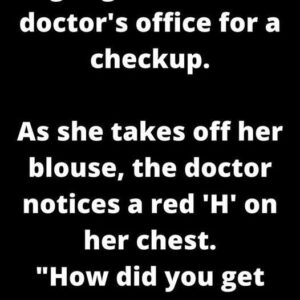As we age, it becomes more important than ever to pay attention to subtle changes in our bodies — and that includes our mouths. Oral cancer, sometimes called mouth cancer, can quietly develop without causing much discomfort at first. But if caught early, it can often be treated successfully.
That’s why knowing the early symptoms of oral cancer is so important — especially for older adults. The risk increases significantly after age 40, and regular dental checkups for seniors are one of the best ways to catch problems early.
In this guide, we’ll walk you through the warning signs you should never ignore. Whether it’s a sore that just won’t heal, unusual bleeding, or a persistent bad taste, being aware could make all the difference.
A Mouth Sore That Won’t Go Away? Don’t Brush It Off
It might start as something small — a little spot on the inside of your cheek, lip, or gum that just won’t go away. Most people assume it’s from accidentally biting their mouth or irritation from dentures. But a mouth sore that doesn’t heal within two weeks could be one of the first signs of oral cancer.
These sores often don’t cause pain at first, which makes them easy to ignore. But if it lingers, it’s time to call your dentist or doctor. Don’t wait for it to hurt — early action can save your life.
White or Red Patches in Your Mouth? Time to Take a Closer Look
Have you noticed white patches on your gums or inner cheeks that don’t brush away? Or maybe red, velvety areas that seem a bit strange? These could be signs of something more serious than irritation from food or dentures.
Leukoplakia: Thick, white patches that may be caused by irritation — but can sometimes lead to cancer.
Erythroplakia: Red patches that are more likely to contain cancerous or precancerous cells.
Mixed patches: Areas that show both red and white changes.
If you see any of these color changes, especially if they don’t go away in a week or two, schedule a dental evaluation. Catching these signs early can mean simpler, more effective treatment.
Bleeding for No Reason? That’s a Red Flag
Occasional gum bleeding while brushing can be normal, especially with sensitive gums or gum disease. But unexplained bleeding in the mouth — not tied to brushing, eating, or injury — is something that should never be ignored.
Whether it’s on the tongue, gums, or inner lining of your cheeks, persistent bleeding might point to underlying tissue changes, including early-stage oral cancer. Don’t chalk it up to “getting older.” A quick visit to your provider can rule out anything serious — or start treatment right away if needed.
Lumps, Rough Patches, or Thick Spots: What You Feel Matters
Our mouths are incredibly sensitive, and you’ll often notice when something feels “off.” That’s why it’s so important to pay attention to new lumps, raised areas, or thick patches in your mouth, tongue, or throat.
These changes may not hurt at first, but they’re still cause for concern. According to the CDC, any unusual texture inside the mouth — like a rough area under your tongue or a bump on the side of your cheek — should be checked out promptly. These growths may indicate abnormal tissue that needs a closer look.
Numbness or Tingling? It Might Be More Than Nerves
Do your lips, tongue, or chin sometimes feel tingly or numb — without any obvious reason? Don’t shrug it off as just part of getting older. Persistent numbness or pain could be a sign that a growing mass is affecting nearby nerves.
The American Dental Association urges anyone experiencing ongoing numbness, pain, or tingling in the mouth or face to seek medical attention. Sensory changes, especially if they come on suddenly or stay for days, may indicate more than just dental issues.
Trouble Chewing, Swallowing, or Speaking? Listen to Your Body
Eating should never be painful. But if you’ve found yourself struggling to chew, swallow, or move your jaw comfortably, it might not just be aging muscles or dry mouth.
Oral cancer can affect your ability to eat or speak, especially when lesions develop in the throat or at the base of the tongue. A feeling like something is stuck in your throat, difficulty pronouncing words, or jaw stiffness could all be subtle signs.
If you notice these changes, don’t wait. Reach out to a healthcare provider to get evaluated — sooner is always better when it comes to cancer.
Bad Breath That Won’t Go Away? It Might Be Telling You Something
We’ve all had a case of bad breath now and then. But if you’re brushing, flossing, and using mouthwash and still notice a persistent odor, it could be a red flag.
Sometimes, chronic bad breath (also called halitosis) can be caused by tissue breakdown, infection, or even cancer in the mouth. If you or someone close to you notices that your breath smells different despite good hygiene, it’s worth bringing up at your next dental visit.
Know the Risk Factors: Who’s More Vulnerable?
Oral cancer doesn’t strike at random. Certain oral cancer risk factors can raise your chances of developing this disease. Here’s what you should know:
Tobacco use: Cigarettes, cigars, chewing tobacco, and even pipes all increase risk.
Heavy alcohol consumption: Especially when combined with smoking.
HPV (Human papillomavirus): A common virus that can affect the mouth and throat.
Excessive sun exposure: Especially important for those who spend time outdoors without lip protection.
Being over 40: Risk increases significantly with age.
Poor nutrition: A diet lacking in fruits and vegetables may increase cancer risk.
If you fit into any of these categories, it’s critical to stay vigilant — and schedule regular oral cancer screenings as part of your routine dental care.
The Importance of Regular Dental Checkups for Seniors
Did you know that many dentists are trained to spot early signs of oral cancer during routine exams? In fact, your twice-a-year dental checkup could be the first line of defense against a life-threatening illness.
Seniors often face unique challenges — from dry mouth due to medications to poorly fitting dentures. These issues can mask or mimic early cancer symptoms. That’s why keeping up with routine dental care for older adults is so essential.
At every visit, ask your dentist whether they’re checking for signs of oral cancer. It’s a simple conversation that could save your life.
When Should You See a Doctor?
It can be hard to know when a symptom is worth worrying about. Here’s a simple rule: If it lasts more than two weeks, get it checked. Specifically, consult a healthcare provider or dentist if you experience:
Sores or patches in your mouth that don’t heal
Lumps, bumps, or new textures in your mouth or throat
Persistent pain, tingling, or numbness
Trouble chewing, swallowing, or speaking
Chronic bad breath despite good hygiene
You can start by talking to your primary care provider or dentist. If needed, they’ll refer you to a specialist, such as an oral surgeon or ENT (ear, nose, and throat) doctor, for further evaluation and testing.
Don’t Ignore What Your Mouth Is Telling You
Oral cancer can be sneaky. It often starts with small, painless changes — a little sore, a red patch, or some jaw discomfort. But these subtle symptoms can grow serious fast if they’re ignored.
The good news? When caught early, oral cancer is often treatable. That’s why staying informed, checking your mouth regularly, and seeing your dentist twice a year are vital steps — especially for older adults.
Don’t wait until something hurts. Listen to your body. Pay attention to what’s happening in your mouth. A few minutes of awareness could mean many more healthy years ahead.





